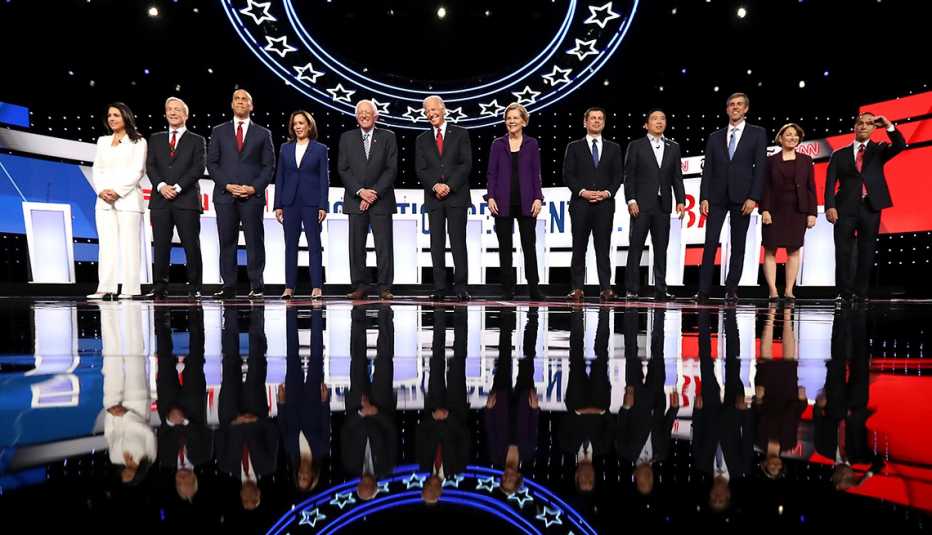Staying Fit


Democratic presidential hopefuls on a debate stage in Ohio Tuesday evening challenged one of the front-runners, Massachusetts Sen. Elizabeth Warren, to say whether she would raise taxes to pay for her Medicare-for-All health care plan.
"No plan has been laid out to explain how a multitrillion-dollar hole in this Medicare-for-All plan that Sen. Warren is putting forward is supposed to get filled in,” said South Bend, Indiana, Mayor Pete Buttigieg. “We really can deliver health care for every American and move forward with the boldest, biggest transformation since the inception of Medicare itself,” he said, by creating a “Medicare-if-you-want-it” plan that preserves private insurance.


AARP Membership— $12 for your first year when you sign up for Automatic Renewal
Get instant access to members-only products and hundreds of discounts, a free second membership, and a subscription to AARP the Magazine.
"We can pay for this,” Warren said about Medicare-for-All. “Costs are going to go up for the wealthy. They're going to go up for big corporations. They will not go up for middle-class families. And I will not sign a bill into law that raises their costs, because costs are what people care about."
Vermont Sen. Bernie Sanders, the original author of the Medicare-for-All bill that Warren supports, said “I do think it is appropriate to acknowledge that taxes will go up.” Sanders said that under his plan, premiums, copayments and deductibles would be eliminated. “For virtually everybody,” Sanders said, “the tax increase they pay will be substantially less than what they were paying for premiums and out-of-pocket expenses."
Both the Sanders and Warren plans would phase out private health insurance out over a number of years and replace it with a public plan, called a single-payer system.
The majority of the dozen candidates on the stage Tuesday support expanding health care benefits without eliminating private health care insurance.

































































More on politics-society
House Leaders Unveil Bill to Lower Prescription Drug Prices
Medicare could negotiate prices, and out-of-pocket costs would be cappedExecutive Order Aims to Improve Medicare Options and Affordability
It could expand Medicare Advantage choices and increase access to telehealth